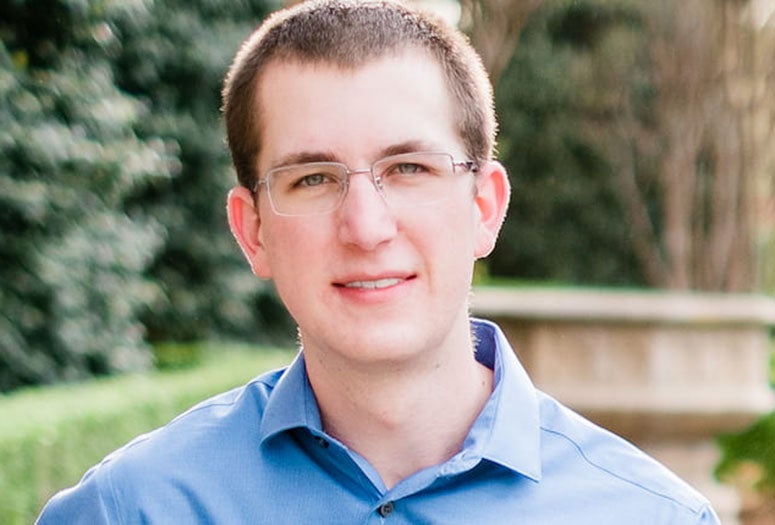Justin Porter, a Rice mechanical engineering graduate student, has won a Department of Energy Computational Science Graduate Fellowship.
The program named 26 U.S. students to fellowships, inviting them to apply high-performance computing this fall to research in fields ranging from plasma physics to plant biology.
Porter, who works in the lab of Matthew Brake, an assistant professor of mechanical engineering, performs computational modeling of the nonlinear dynamics of bolted joints.
“Bolted joints introduce significant uncertainty into the nonlinear dynamics of structures,” he said. “Joints are required because it is not feasible to build large or complicated systems from a single piece of material. My research seeks to improve computational models of bolted structures that can then be used to improve designs of jointed connections. Better models and joint designs will reduce the current $2 billion annual cost of vibration testing of structures.
“The size and complexity of the models require the use of high-performance computing systems,” Porter said. “Thus, the fellowship focus on high-performance computing will significantly aid my research.”
The program, established in 1991, trains top leaders in computational science. With the 2020-21 class, more than 500 students will have entered the fellowship. More than 400 have gone on to support computing's capacity to address problems important to the nation’s future.
As part of the program, fellows receive a yearly stipend, full payment of university tuition and required fees during the appointment period, and an annual academic allowance. Renewable for up to four years, the fellowship is guided by a comprehensive program of study that requires focused coursework in the areas of science and engineering, computer science and applied mathematics. It also includes a three-month practicum at one of 21 Department of Energy laboratories or sites across the country.

